AITAH For Refusing to Cancel Child Support?
When family becomes both your greatest blessing and your biggest legal headache, you know life isn’t playing by the rulebook. For over six years, a 34-year-old man has taken on the role of caregiver and protector for his niece—a role thrust upon him when his sister’s struggles with addiction and run-ins with the law left her daughter in a perilous situation. What began as a desperate measure to keep a child safe quickly spiraled into a costly, emotionally charged custody battle that challenged not only familial loyalty but also financial fairness.
Now, after pouring a six-figure sum into legal fees and navigating turbulent courtrooms, he’s faced a new dilemma: family members urging him to forgive nearly $30,000 in back child support. Although his heart remains with his niece, the support money represents not only reimbursement for his sacrifices but also a lifeline meant solely for her future. With tensions rising and loyalties divided, he asks the hard question—am I the asshole for standing firm on this principle?

‘AITAH For Refusing to Cancel Child Support?’
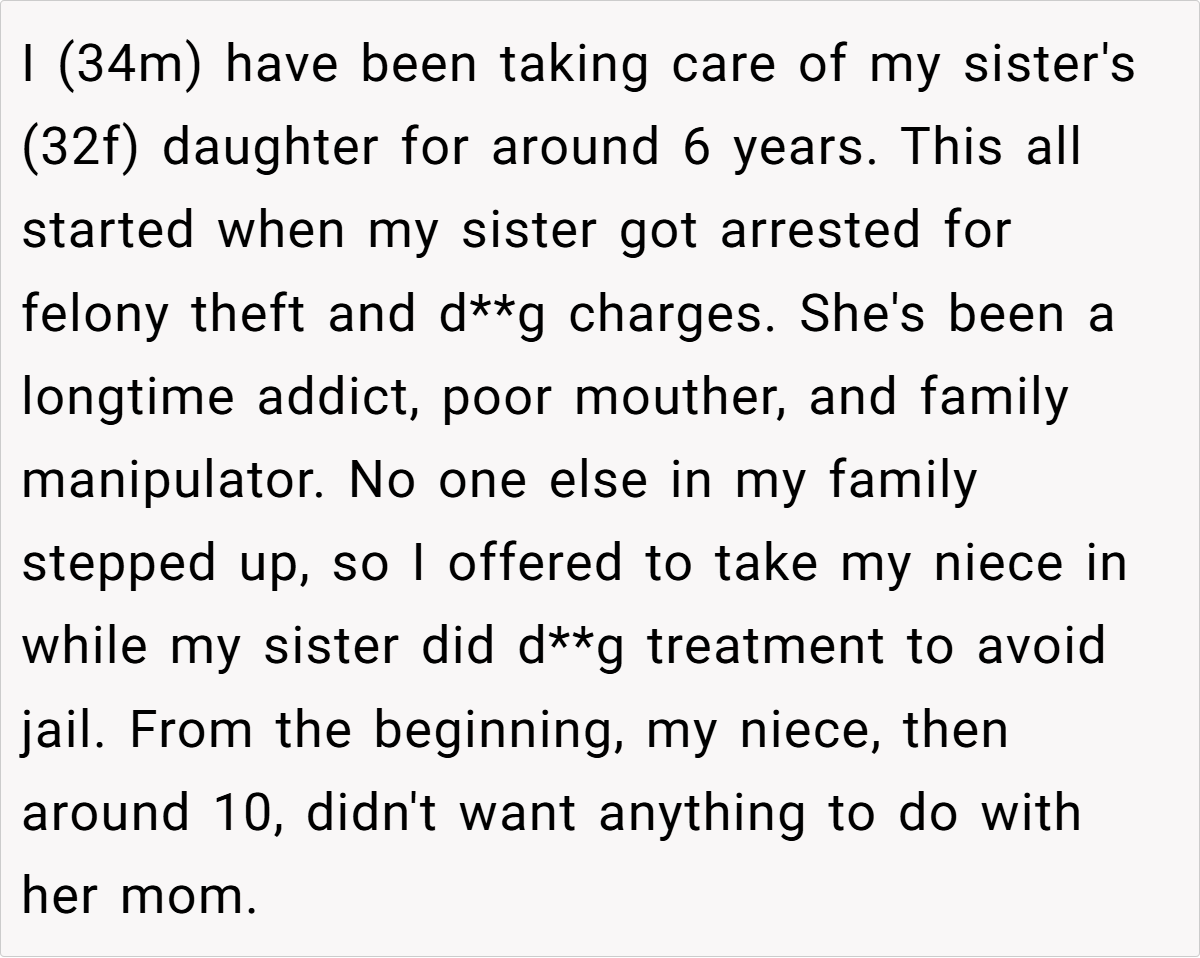

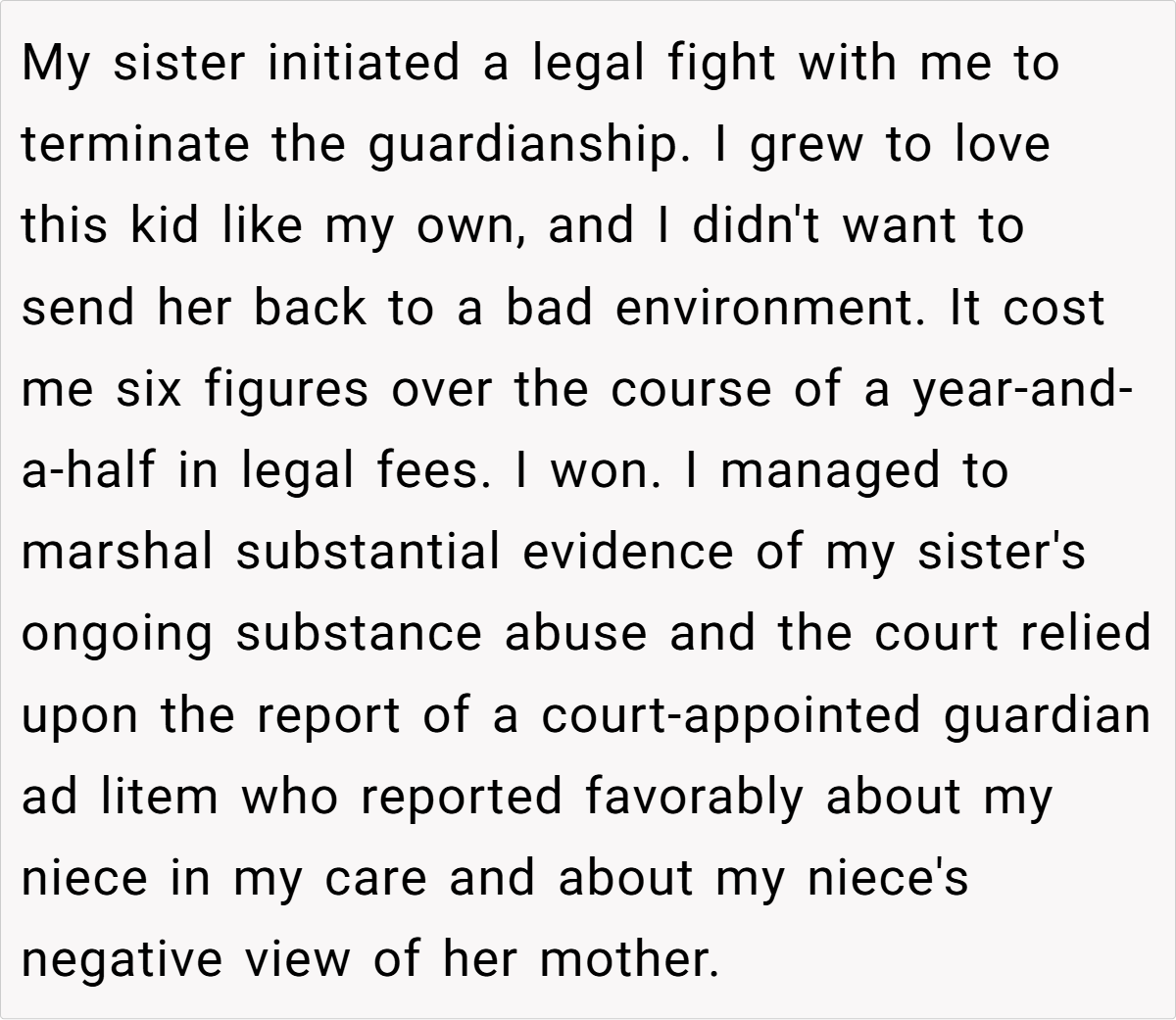
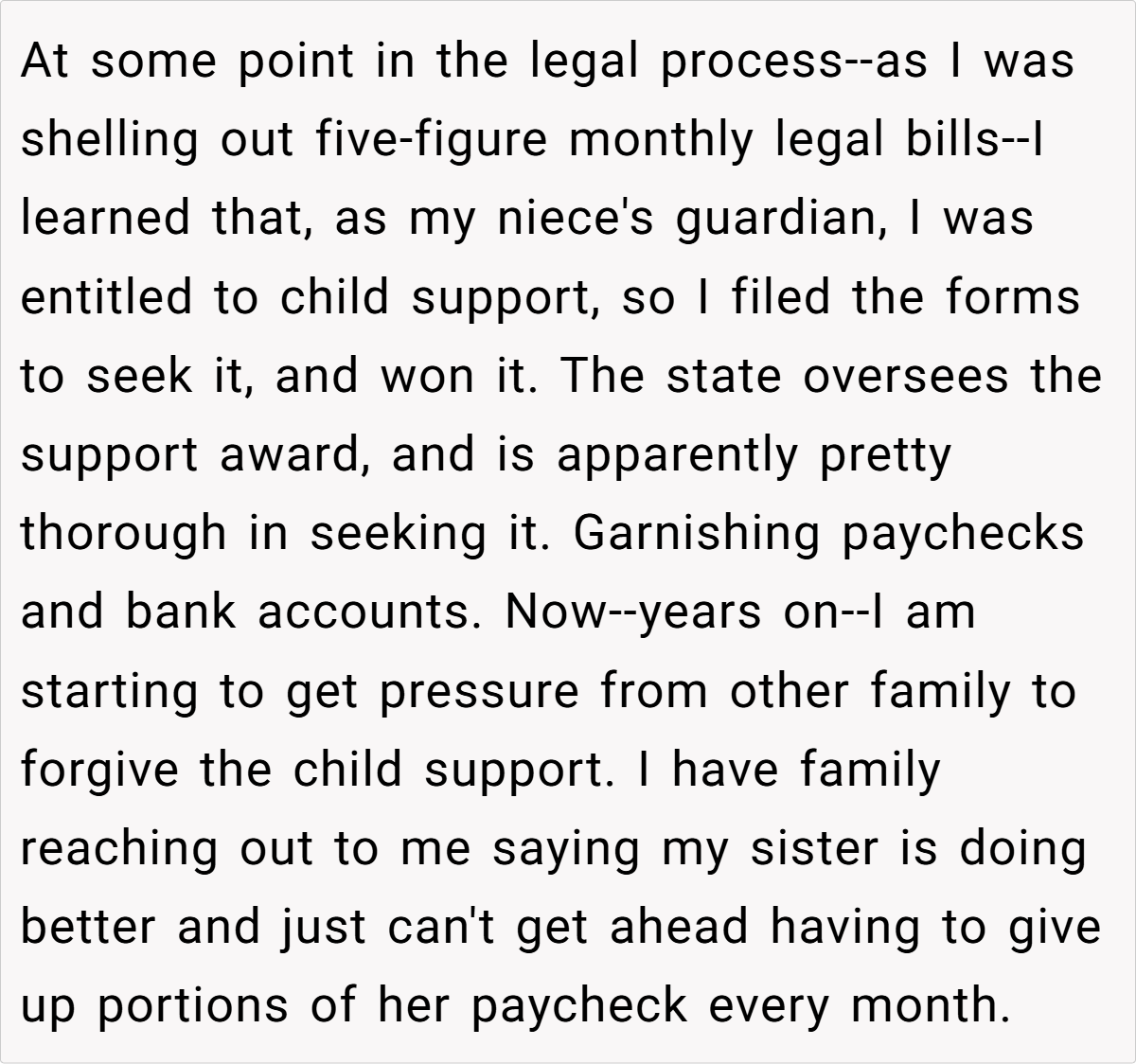
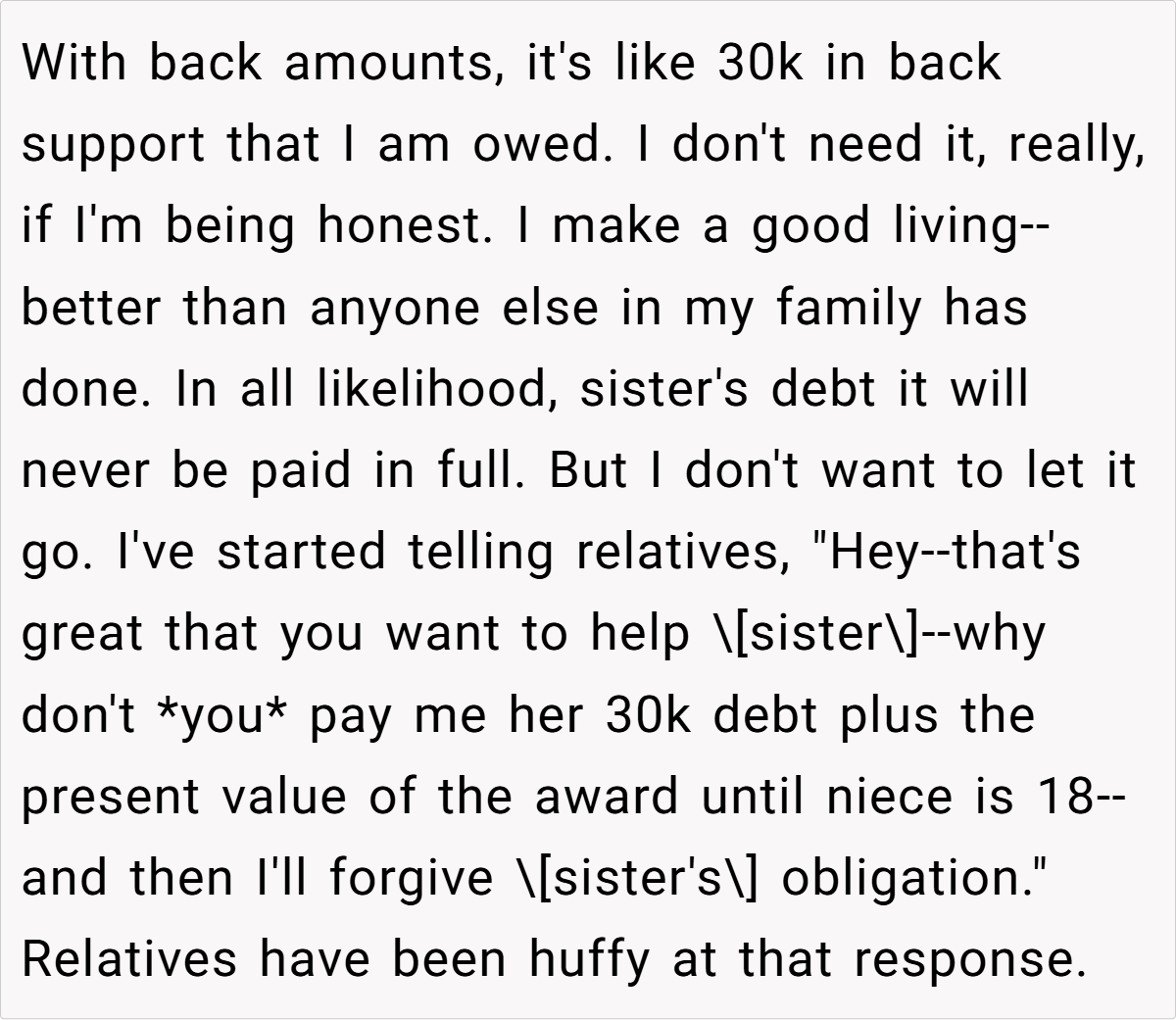

In family law, few issues are as complex and heart-wrenching as guardianship and child support disputes. Legal experts stress that child support isn’t a windfall for the caregiver—it’s a critical resource allocated for the child’s well-being.
As family law attorney Laura Wasser explains, “Child support is intended solely for the benefit of the child. It is not designed to serve as a reward for the custodial parent or a penalty for the noncustodial parent.” This principle underscores that any financial support awarded is meant to offset the sacrifices made to provide a stable, nurturing environment.
In this case, the caregiver not only assumed the day-to-day responsibilities of raising his niece but also invested heavily—both emotionally and financially—in ensuring her safety and well-being. The staggering legal fees he incurred to secure guardianship were not merely personal costs;
they were necessary expenditures to protect a vulnerable child from a turbulent and harmful environment. For many family law specialists, these expenses illustrate the harsh reality of a system where parental missteps can force extended family members to act as life-saving substitutes.
Moreover, child support payments, especially when monitored by state agencies, are structured to support the child’s present and future needs—be it education, healthcare, or daily living expenses. Financial advisor Dave Ramsey often reminds us, “Child support money should be seen as an investment in the child’s future, not as extra income for the parent who receives it.”
While our caregiver here is financially secure, the funds he receives are earmarked for his niece’s benefit—a trust that could one day fund her college education or help launch her into a promising career.
The legal and ethical underpinnings of his stance are clear: forgiving child support under these circumstances not only undermines the purpose of the support system but also risks penalizing the child whose welfare should be paramount. By insisting that his sister remains accountable for her financial obligations—even if full repayment may never come—the caregiver is standing up for a principle that many experts deem essential:
protecting the best interests of the child. In families where mistakes have far-reaching consequences, every dollar meant for the child is a bulwark against further instability. The decision, therefore, isn’t about personal gain but about preserving a future for a child who has already suffered too much.
Here’s the input from the Reddit crowd:
Across Reddit, the reaction was nearly unanimous. Commenters applauded his determination, stressing that the money isn’t his to pocket—it’s meant to support his niece’s future. Many reminded fellow users that child support, no matter how burdensome it might seem, exists precisely to ensure that a child receives the care and resources they deserve. In short, while some relatives may wish to see familial debts forgiven out of sympathy for his sister’s struggles, the prevailing sentiment is that protecting the child’s financial security must always come first.

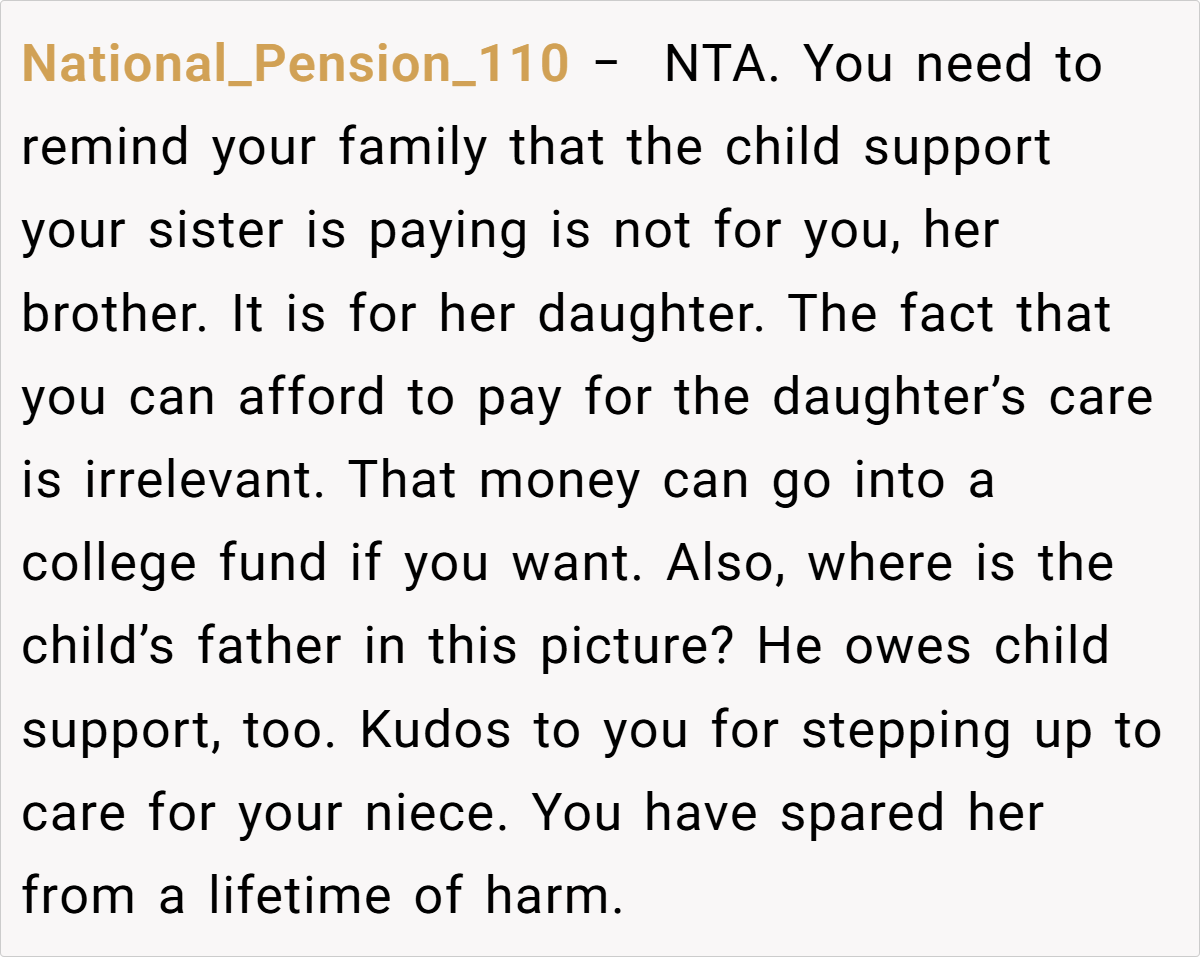




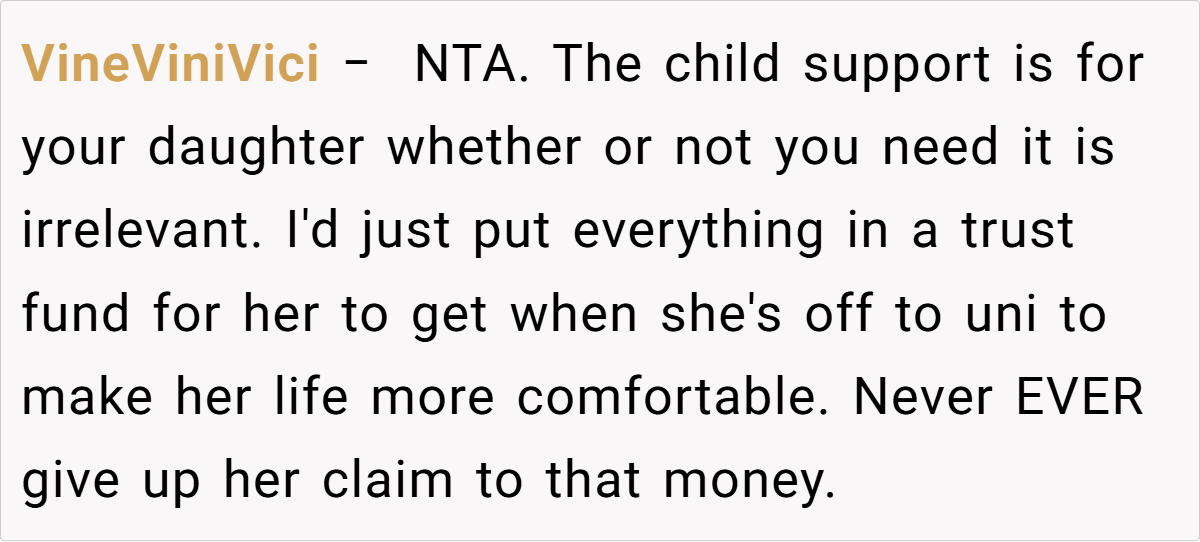



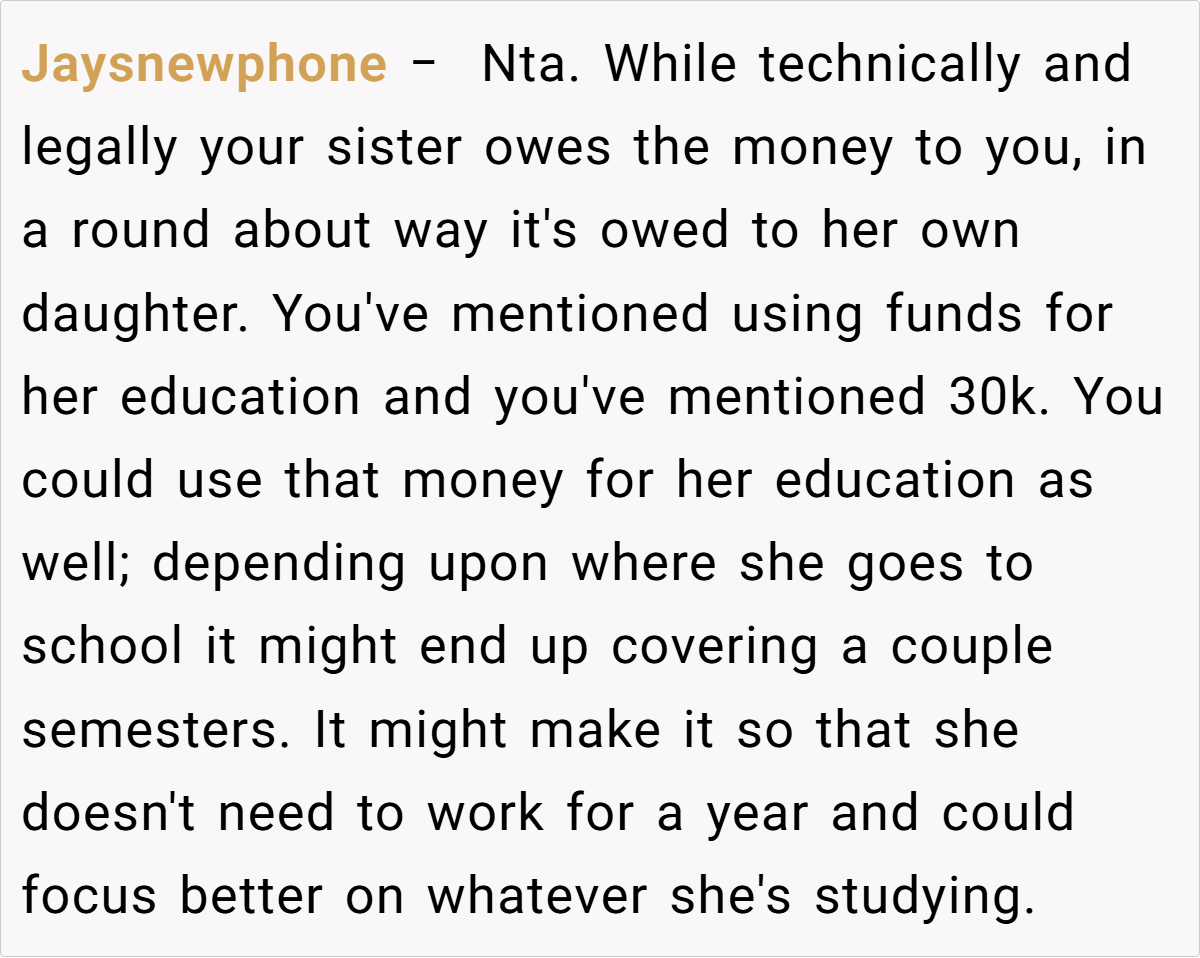


Ultimately, this isn’t just a story about dollars and cents—it’s about safeguarding a child’s future in the face of familial chaos. When the lines between love and responsibility blur, tough decisions must be made for the greater good. Should personal sacrifice come with a price tag, or is every cent of support non-negotiable if it’s meant for the child’s well-being? What would you do if you found yourself in a similar situation? Share your thoughts and experiences, and let’s discuss how best to balance compassion with accountability in our families.

